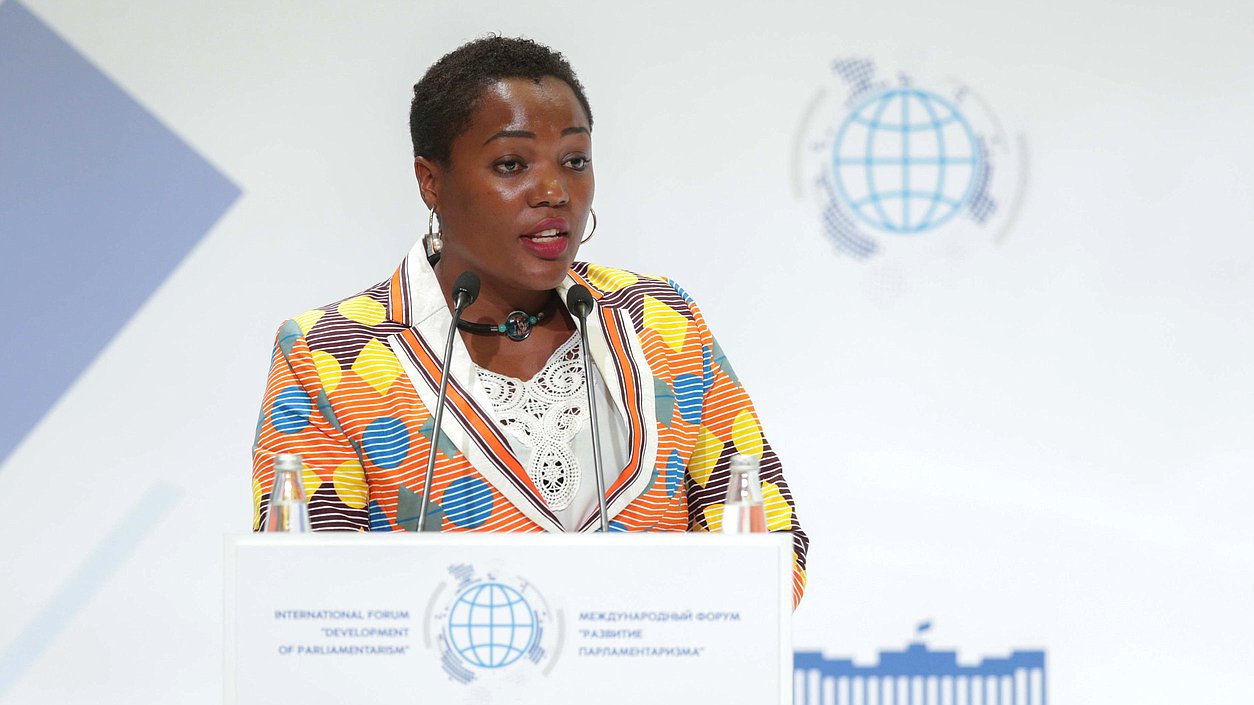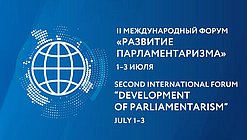
The moderator of the section was Vice-President of Transneft, JSC, Mikhail Margelov. Opening the section, he noted that his company has been successfully operating in the African continent. “Our cooperation with Sonatrach, an Algerian oil and gas company, is, in my opinion, one of the examples of how Russia peacefully, pragmatically, without any political conditions comes to work on the African continent and together with the nationals of the African continent earns money for people of Africa and Russia,” he said.
Mikhail Margelov noted that Africa is a dynamically developing region, and relations with African countries are an important part of our country's foreign policy since the days of the USSR.
Information exchange
The Honorary President of the Institute for African Studies of the Russian Academy of Sciences, Alexey Vasiliev, pointed out that the level and scope of Russian economic cooperation with Africa has doubled in recent years, ”but Russian-African cooperation is not in the top five.“ He urged to choose for cooperation large on-site objects in which both sides would be interested.
Alexey Vasiliev also noted that not all African countries have signed agreements with Russia, for example, on the abolition of double taxation. There are other areas in which cooperation could be facilitated.
“Parliaments of Russia and African countries should create together the legal framework in order to develop common position which is in interests of both sides,” he stressed.
Speaking about joint investments, Alexey Vasiliev noted that it is possible to invest in agriculture, manufacturing industry, the financial sector, assembly enterprises and information technologies. He also believes that it is necessary to create free trade areas. “But before creating them, we need information. And here I am ready to reproach the Russian side, providing few information to Africans about their capabilities, but, on the other hand, reproach the African side, because when our business comes to Africa, they should know where they go, why and what they will get as a result”, — said Alexey Vasiliev. “This exchange of information is very important,” said the Honorary President of the Institute for African Studies of the Russian Academy of Sciences.
Mutually beneficial cooperation
He also proposed to consider the issue of removal of tariff and non-tariff restrictions on economic relations.
“The task before us, especially before the parliaments, is to harmonize the norms of trade, contract and civil law. The parliamentarians of the two sides have the task to work together on a legislative framework that would be in the interests of both sides. This should be a matter of priority,” said Alexey Vasiliev.
Member of the Parliament of Tanzania Salome Makamba noted that Africa wants to attract investment, but all the signed contracts should be mutually beneficial.
“Legislators have the opportunity to ensure that, despite political differences, the signed contracts will help the next generation,” she said. It is necessary to avoid political differences for our countries and our future generations, as Salome Makamba said.
During the discussion, issues of cooperation between Russia and African states in the mining industry, mechanical engineering, as well as in the field of security, were also raised.
The Second International Forum ”Development of Parliamentarism“ is being held on July 1–3 on the initiative of the State Duma. The Forum will also host the Parliamentary Conference “Russia-Africa”. As the Chairman of the State Duma Viacheslav Volodin noted, “this year the number of participants has increased considerably- last year there were 19 speakers of the [national parliaments] at the Forum, this year there are 41 of them. Also last year 96 countries were represented, this year more than 800 parliamentarians and experts from 132 countries are participating in the Forum. ”

